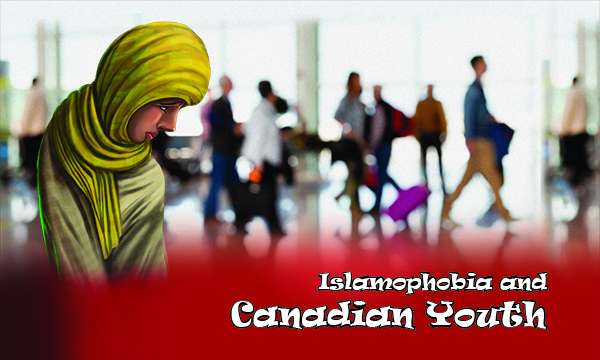ARTICLES, WHAT IS BULLYING? HOW TO STOP KIDS BULLYING NOW
Islamophobia In Canada – Canadian Youth

Islamophobia and Terrorist Attacks
First, there was 9/11, the terrorist attack on the World Trade Center and the Pentagon. There have been many events since then, but recent events are contributing even more so to islamophobia in Canada. One event is the Saint-Jean-sur-Richelieu attack in Quebec in 2014, where radicalized Martin Couture-Rouleau rammed a vehicle into a pair of Canadian Armed Forces officers Rouleau had called 911 in the car chase that followed, claiming he had acted in the name of Allah before police gunned him down.
Following this event, was the terrorist attack on Parliament Hill in Ottawa where a gunman, Michal Joseph Zihaf-Bibeau, shot down Corporal Nathan Cirillo before being gunned down inside the House of Commons. International events such as the January 2015 Charlie Hebdo massacre in Paris sparked high emotions all over the world. Two Islamic terrorists killed 12 people, including those that worked for Charlie Hebdo magazine, which published satirical cartoons about political and religious matters, as well as two police officers and a maintenance worker.
Have you read our article to determine if you are guilty of racial discrimination? Find out now
These events, as well as many others, have produced islamophobia, prejudice against Islam and Muslims, not just in Canada, but also across the world. Such events have sparked outrage against Muslims but also outrage within Muslim groups who have felt wrongly targeted and attacked by the media. For example, following the attack on Parliament Hill, a mosque in Cold Lake, Alberta, was vandalized with the words, “Go Home”.
On a larger scale, after the Charlie Hebdo attacks in Paris, rallies sparked all over the world. From Pakistan, to Niger, Yemen, Palestine and Chechnya, hundreds of people protested the depiction of the Prophet Muhammad in Charlie Hebdo. In London, thousands of Muslims gathered to protest depictions of the prophet Muhammad as well as to show their support for the victims of the massacre, condemning terrorist attacks.
In Paris and all over France, thousands, including about forty world leaders, gathered to show support for the victims and for freedom of speech. Overall, these recent events have had a massive impact on how the world sees and understands Islam and its followers, but it is Muslim youth, who feel tied to their culture and religion but also to their home country, who are seriously affected by discrimination.
What is Islamophobia?
According to the University of California’s Centre for Race and Gender, islamophobia is an unjustified hostility towards Muslims, which leads to a fear and dislike of all Muslims. Based on a report done by the university, some common beliefs of those who have islamophobia are:
- Islam cannot adapt to other or new realities
- Islam has nothing in common with any other faiths such as Christianity or Judaism
- Islam is violent and supports terrorism
In Canada, just over one million people identified as Muslims in 2011. This means that they represent 3.2% of the nation’s population, and amongst new immigrants to Canada, 10.6 % are Muslim. Islam is, in fact, the fastest-growing religion in Canada, growing even faster than the number of Canadians who do not belong to any religion at all.
If the religion of Islam is growing this fast while these kinds of negative views of Islam are spreading, then what does that mean for how Canadian Muslim youth are treated in their schools, community, and in broader Canadian society?







